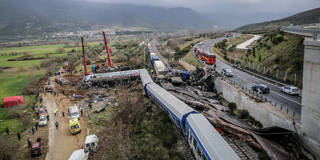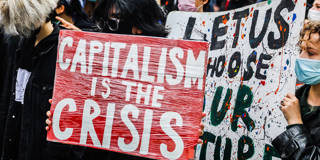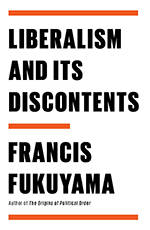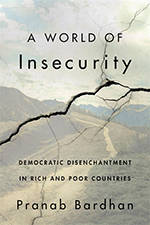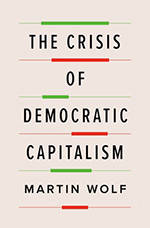
Demonstrators holds banners as they gather on the place de la Concorde near the National Assembly, with the Eiffel tower in the background, to protest after French Prime Minister Elisabeth Borne delivered a speech to announce the use of the article 49.3, a special clause in the French Constitution, to push the pensions reform bill through the lower house of parliament without a vote by lawmakers, in Paris, France, March 16, 2023. (Reuters)
The Associated Press
Published: 17 March ,2023:
Protests against French President Emmanuel Macron’s decision to force a bill raising the retirement age from 62 to 64 through parliament without a vote disrupted traffic, garbage collection and university campuses in Paris as opponents of the change maintained their resolve to get the government to back down.
Striking sanitation workers blocked a waste collection plant that is home to Europe’s largest incinerator to underline their determination, and university students walked out of lecture halls to join the strikes. Leaders of the influential CGT union called on people to leave schools, factories, refineries and other work places.
Union leaders were not the only ones angry about Macron’s plan to make French citizens work for two more years before becoming eligible to collect full pensions. Opposition parties were expected to start procedures later Friday for a no-confidence vote on the government led by Prime Minister Elisabeth Borne. The vote would likely take place early next week.
Macron ordered Borne on Thursday to make use of a special constitutional power to push the highly unpopular pension bill through without a vote in the National Assembly, France’s lower house of parliament.
His calculated risk infuriated opposition lawmakers, many citizens and unions. Thousands gathered in protest Thursday at the Place de la Concorde, which faces the National Assembly building. As night fell, police officers charged the demonstrators in waves to clear the Place. Small groups then moved through nearby streets in the chic Champs-Elysees neighborhood,. setting street fires.
Similar scenes repeated themselves in numerous other cities, from Rennes and Nantes in eastern France to Lyon and the southern port city of Marseille, where shop windows and bank fronts were smashed, according to French media.
French Interior Minister Gérald Darmanin told radio station RTL on Friday that 310 people were arrested overnight. Most of the arrests, 258, were made in Paris, according to Darmanin.
The trade unions that had organized strikes and marches against a higher retirement age said more rallies and protest marches would take place in the days ahead. “This retirement reform is brutal, unjust, unjustified for the world of workers,” they declared.
Overwhelming streets with discontent and refusing to continue working is “the only way that we will get them to back down,” CGT union representative Régis Vieceli told The Associated Press on Friday. He added: “We are not going to stop.”
Macron has made the proposed pension changes the key priority of his second term, arguing that reform is needed to make the French economy more competitive and to keep the pension system from living into deficit. France, like many richer nations, faces lower birth rates and longer life expectancy.
Macron decided to invoke the special power during a Cabinet meeting a few minutes before a scheduled vote in the National Assembly, where the legislation had no guarantee of securing majority support. The Senate adopted the bill earlier Thursday.
Opposition lawmakers demanded the government to step down. If the expected no-confidence motion fails, the pension bill would be considered adopted. If it passes, it would also spell the end Macron’s retirement reform plan and force the government to resign, a first since 1962.
Macron could reappoint Borne if he chooses, and a new Cabinet would be named.
Macron’s centrist alliance has the most seats in the National Assembly, where a no-confidence motion also requires majority support. Left-wing and far-right lawmakers are determined to vote in favor.
Leaders of the The Republicans have said their conservative party would not back the motion. While some party lawmakers might stray from that position, they are expected to be a minority.
‘DENIAL OF DEMOCRACY’
Lawmakers swore to introduce a no-confidence motion after Emmanuel Macron’s government invoked Article 49.3 of the French Constitution, ducking the need for a vote on the bill.
AJ McDougall
Breaking News Reporter
Updated Mar. 16, 2023
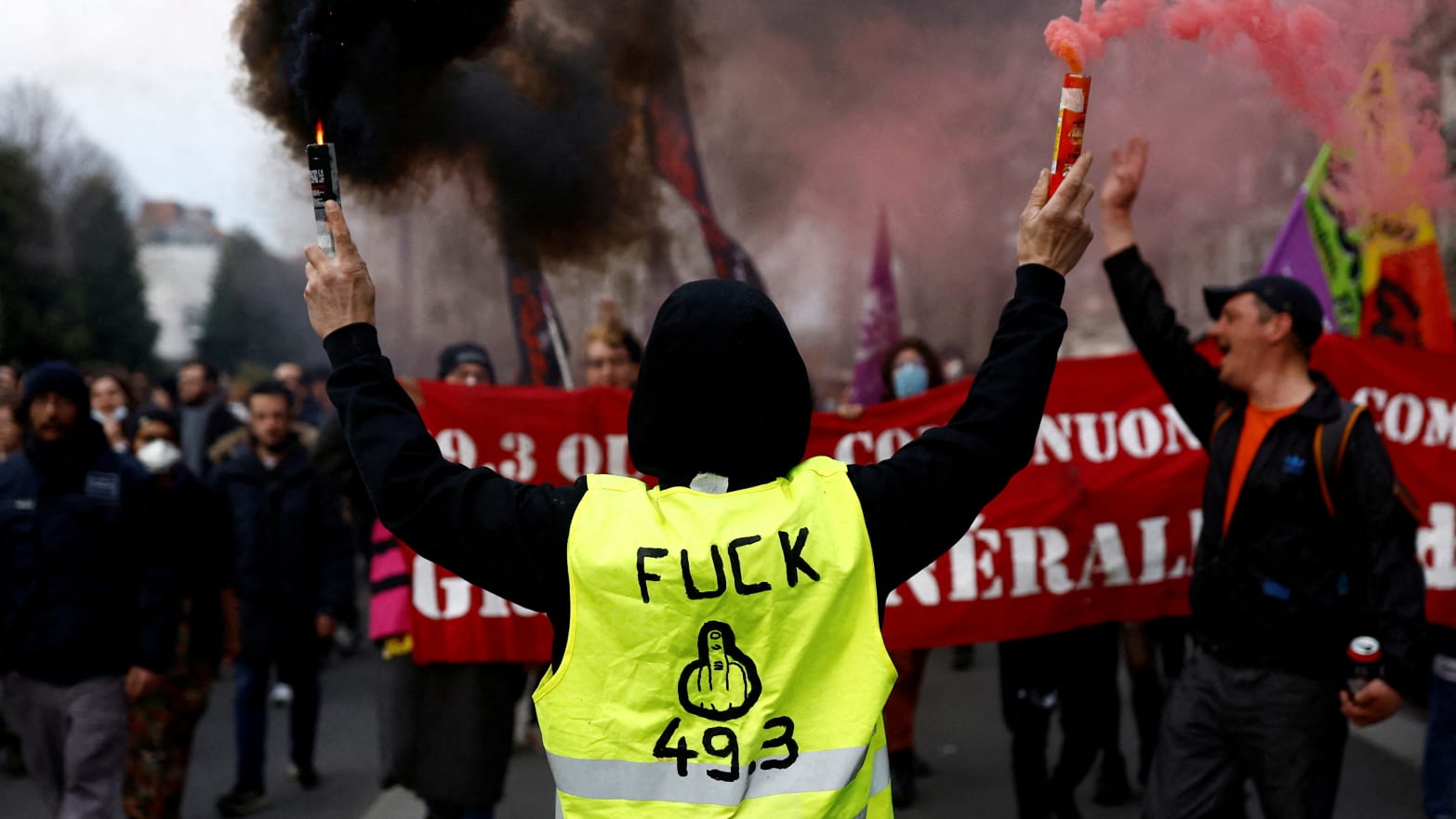
Stephane Mahe/Reuters
Thousands of people furious with the French government’s plan to raise the retirement age by two years gathered to stage a protest on Thursday, with the demonstrations escalating into clashes with the police and fire-setting after reports emerged that President Emmanuel Macron would ram the reform through without a parliamentary vote.
Inside the National Assembly chamber, where lawmakers had just learned they’d been denied a vote on the measure, equally livid representatives from both sides of the aisle banged on their desks and belted out La Marseillaise, the French national anthem, trying to drown out Prime Minister Élizabeth Borne as she attempted to explain what had just happened—and why.
“We cannot bet on the future of our pensions,” she said from the speaker’s dais, according to CNN. Macron’s deeply unpopular pension bill would raise the legal retirement age from 62 to 64 and tighten restrictions around granting full pensions before age 67.
“This reform is necessary,” she added, barely audible over the jeers.

Pacal Rossignol/Reuters
Borne gave up after less than 10 minutes, The New York Times reported. Opposition lawmakers streamed out of the chamber to angrily denounce the decision to invoke Article 49.3 of the French Constitution, allowing Macron to avoid a vote in the assembly, where he’d had no guarantee of a majority. He’d invoked the constitutional power in a Cabinet meeting just minutes before the vote had been scheduled to be held.
“The government’s use of the 49.3 procedure reflects the failure of this presidential minority,” Charles de Courson, an independent lawmaker, told the BFMTV news channel. “They are not just a minority in the National Assembly, they are a minority in the whole country. The denial of democracy continues.”
Elsewhere in the throng, Marine Le Pen, the head of the far-right National Rally party, expressed the same sentiment. Later, she tweeted, “After the slap that the Prime Minister just gave the French people, by imposing a reform which they do not want, I think that Élisabeth Borne should go.”

Stephane Mahe/Reuters
Opposition leaders on both sides suggested that a no-confidence motion would be brought against Macron and his government on Friday. If successful, it would mark the first such case since 1962. Macron previously survived two no-confidence votes over a budget bill similarly forced through under 49.3 last October, four months after his centrist alliance lost its parliamentary majority.
Outside and across the river Seine, people had gathered in the Place de la Concorde to demonstrate, waving flags, signs, and balloons amid a generally jovial atmosphere. Students marched and called for a general strike. A group of women danced to Gloria Gaynor’s “I Will Survive,” the Times reported, having amended the lyrics slightly: “To the grave for the working class. No to 64 years.” One man sold sandwiches out of the back of his van.
But as night fell, police moved in to clear out the square, and the protests became more chaotic. Jean-Luc Melenchon, a leftist and former member of the National Assembly, told the crowd at the Place that Macron had “gone over the heads of the will of the people,” according to the Associated Press. A fire was lit in the center of the square as officers in riot gear fired tear gas at the crowds. At least 217 people were arrested, Paris police headquarters said late Thursday, according to Le Monde.
Union leaders vowed to maintain their opposition to the pension reform, a deeply sensitive subject in France, with the Confédération Générale du Travail announcing another national day of strikes and demonstrations next Thursday. It would mark the ninth such day in two months, according to the Times.
Protests have broken out across the city of Paris in response to French President Emmanuel Macron raising the retirement age by two years on Thursday, a controversial decision that sidestepped a vote that was scheduled to occur just minutes later in the National Assembly.
Macron and his proponents argue that the reform, which raised the retirement age from 62 to 64, was necessary to save the country's pension system from going bankrupt. France's lower house of parliament was scheduled to vote on the reform, but Macron invoked Article 49.3, a constitutional provision that allows the measure to be pushed through without a parliamentary vote.
The debate mimics an ongoing discussion in the United States as analysts predict that the country's Social Security program could become insolvent by the middle of the next decade. However, any suggestions to the pension system, including raising the age requirement to access its benefits, have been met with hard scrutiny.

Videos began circulating on Twitter Thursday evening of protesters clashing with Parisian police forces in response to Macron's decision. French broadcaster BFMTV posted a compilation of videos taken in the Place de la Concorde—a plaza in Paris adjacent to the National Assembly building—that captured several fires ignited in the protests.
Another video posted by the Trades Union Congress, a union federation based in the United Kingdom, shows a large mass of people gathered at the plaza, with fires dispersed throughout the crowd.
According to a report from British broadcaster Sky News, Macron's decision also elicited protests within the French parliament, including some politicians singing the French national anthem and holding plaques reading: "No to 64 years."
The report from Sky News also captured police dressed in riot gear tossing what they labeled as tear gas toward the rioters. Another video from the broadcaster showed police charging at the crowd gathered at Place de la Concorde.
Preliminary reports say that at least 120 demonstrators were arrested Thursday night, according to a report from France Bleu.
In the U.S., some GOP-proposed reforms have included raising the eligibility age for Social Security and Medicare from 67 to 70. At the moment, any citizen born after 1960 is entitled to full retirement benefits at age 67.
Meanwhile, Democratic leaders, including President Joe Biden, have accused the GOP of wanting to slash Social Security in its entirety. The topic is shaping up to be a potential defining issue in the 2024 presidential election, with some candidates like Republican Nikki Haley proposing an older age of retirement.
Newsweek has contacted the French Embassy to the U.S. via email for comment.
By Sean Boynton Global News
Posted March 16, 2023

Fiery protests raged across France Thursday night and into Friday morning after President Emmanuel Macron ordered his prime minister to wield a special constitutional power that skirts parliament to force through a highly unpopular bill raising the retirement age from 62 to 64 without a vote.

At the Place de la Concorde across from the National Assembly in Paris where the legislative drama unfolded, thousands of protesters gathered and lit a bonfire. The demonstrators included members of workers’ unions who have been holding strikes and marches against the pension reform since January.
READ MORE: France’s Macron invokes special power to adopt pension reform without vote
Riot police moved in to clear the area as night fell, sending small groups into nearby streets where they set garbage on fire.
At least 120 people were detained, police said.
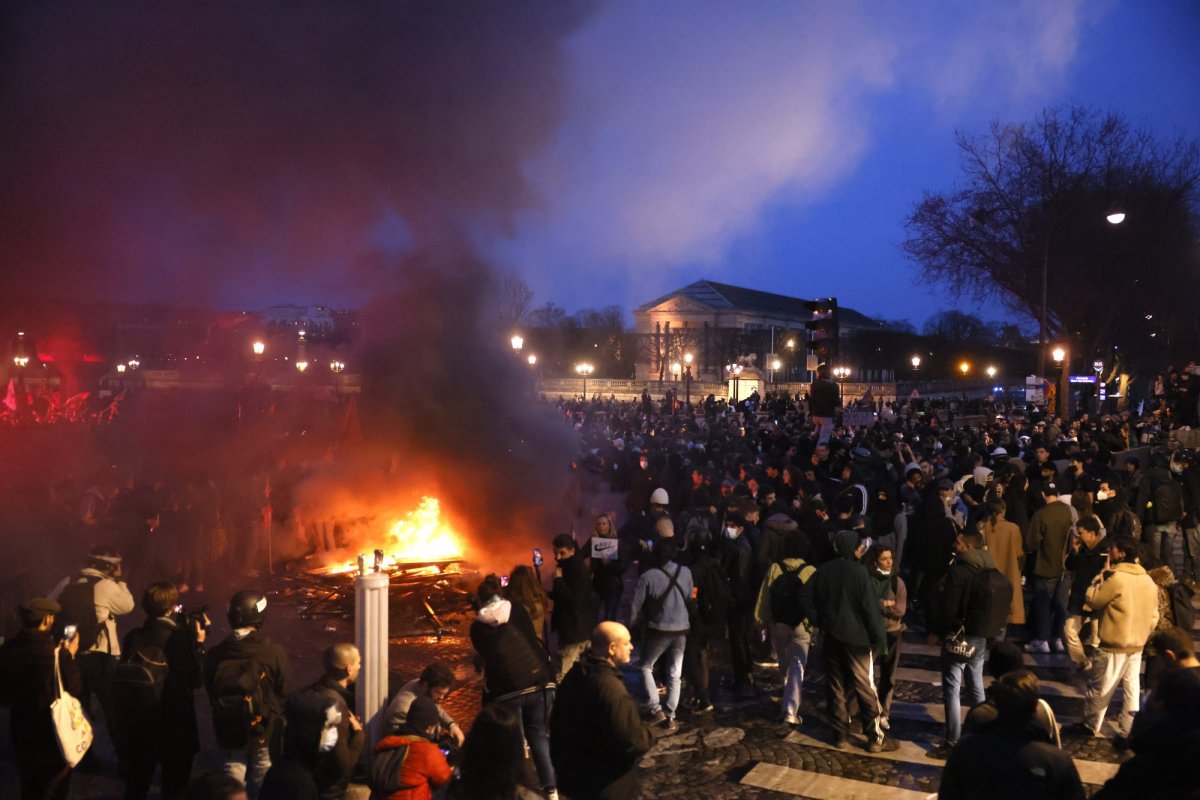


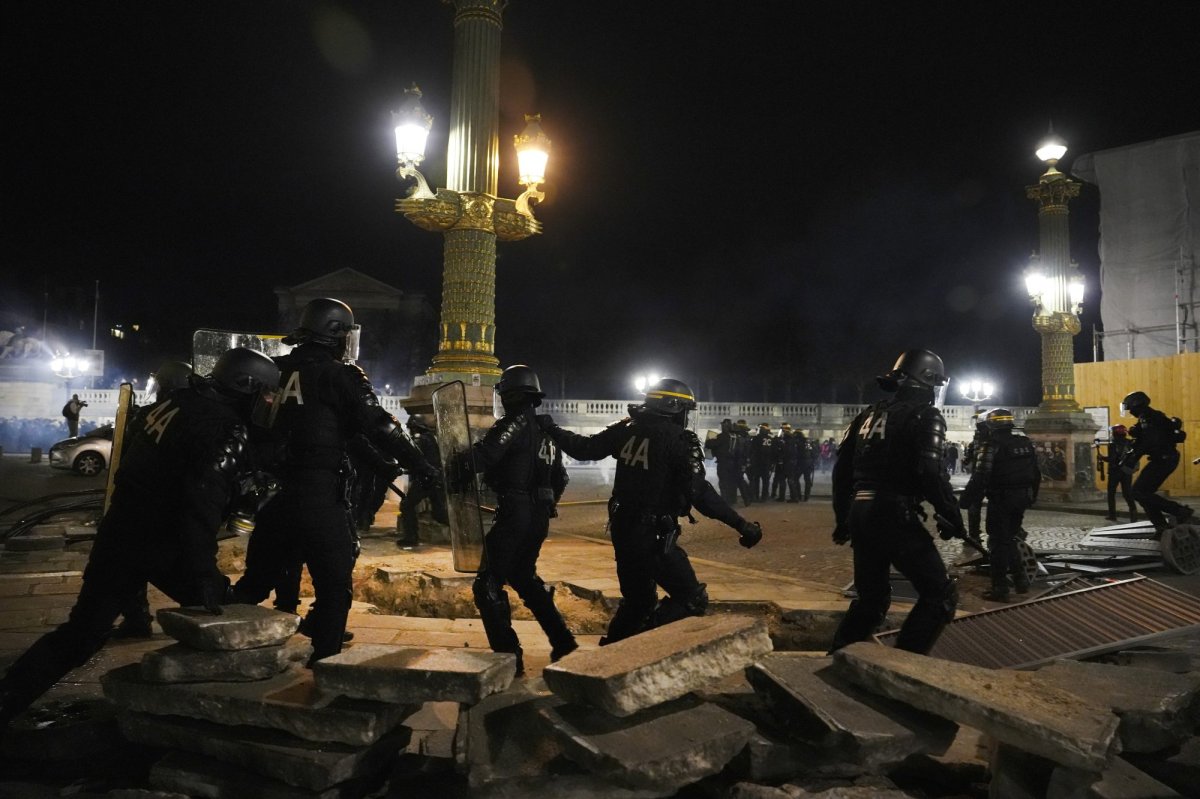
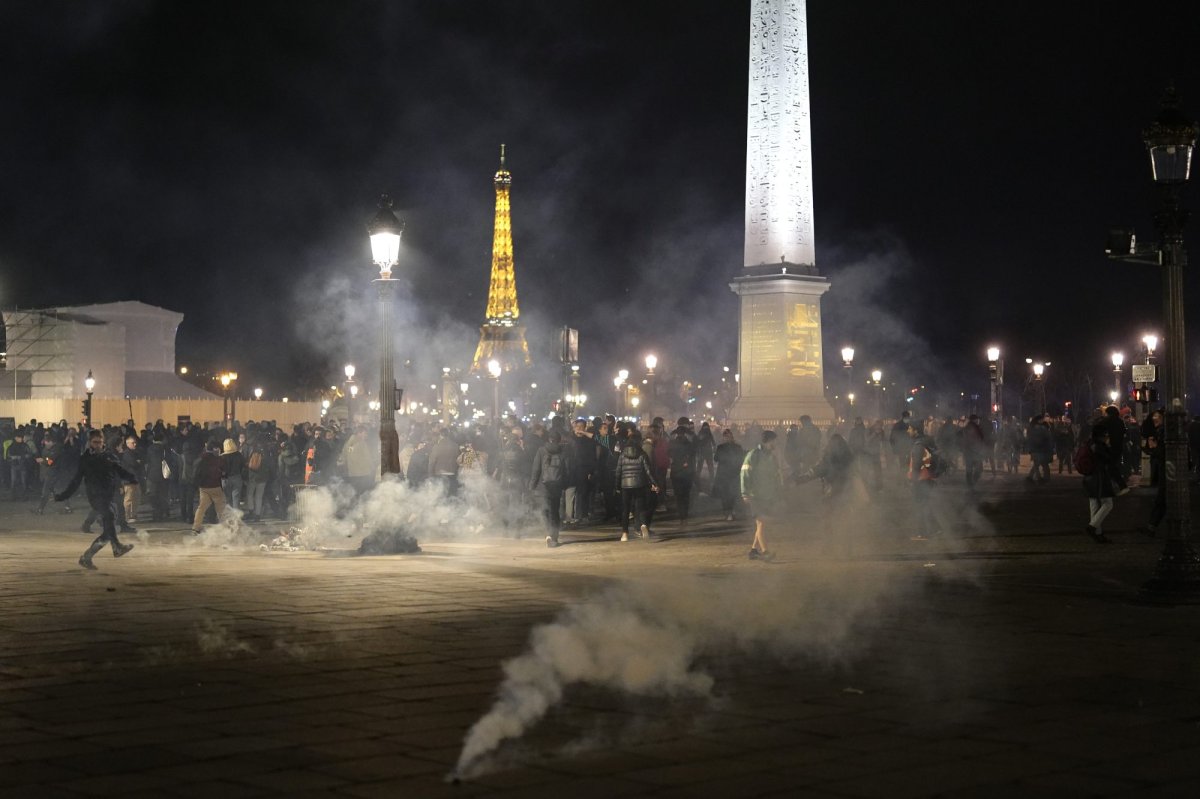
Similar scenes repeated themselves in numerous other cities, from Rennes and Nantes in the east to Lyon and the southern port city of Marseille, where shop windows and bank fronts were smashed.
Radical leftist groups were blamed for at least some of the destruction.
The unions announced new rallies and protest marches in the days ahead. “This retirement reform is brutal, unjust, unjustified for the world of workers,” they declared.
Sanitation workers have been among those participating in the strikes, which have led to piles of garbage in the streets of Paris.




Macron has made the proposed pension changes the key priority of his second term, arguing that reform is needed to keep the pension system from diving into deficit as France, like many richer nations, faces lower birth rates and longer life expectancy.
The president decided to invoke the special power during a Cabinet meeting at the Elysee presidential palace, just a few minutes before the scheduled vote in France’s lower house of parliament, because he had no guarantee of a majority.
Speaking above the cries of protesting lawmakers in the National Assembly Thursday, Prime Minister Elisabeth Borne acknowledged that Macron’s unilateral move will trigger quick motions of no-confidence in his government.
Marine Le Pen said her far-right National Rally party would do just that, and Communist lawmaker Fabien Roussel said such a motion is “ready” on the left.
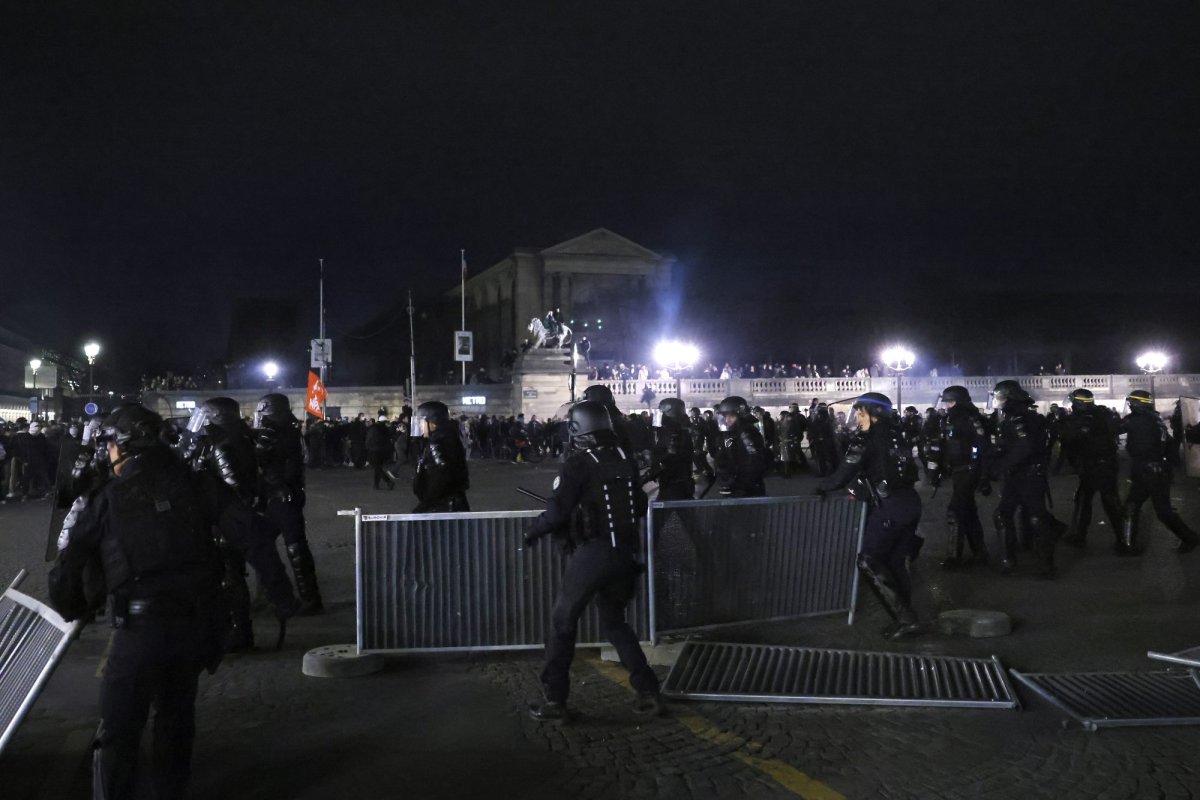
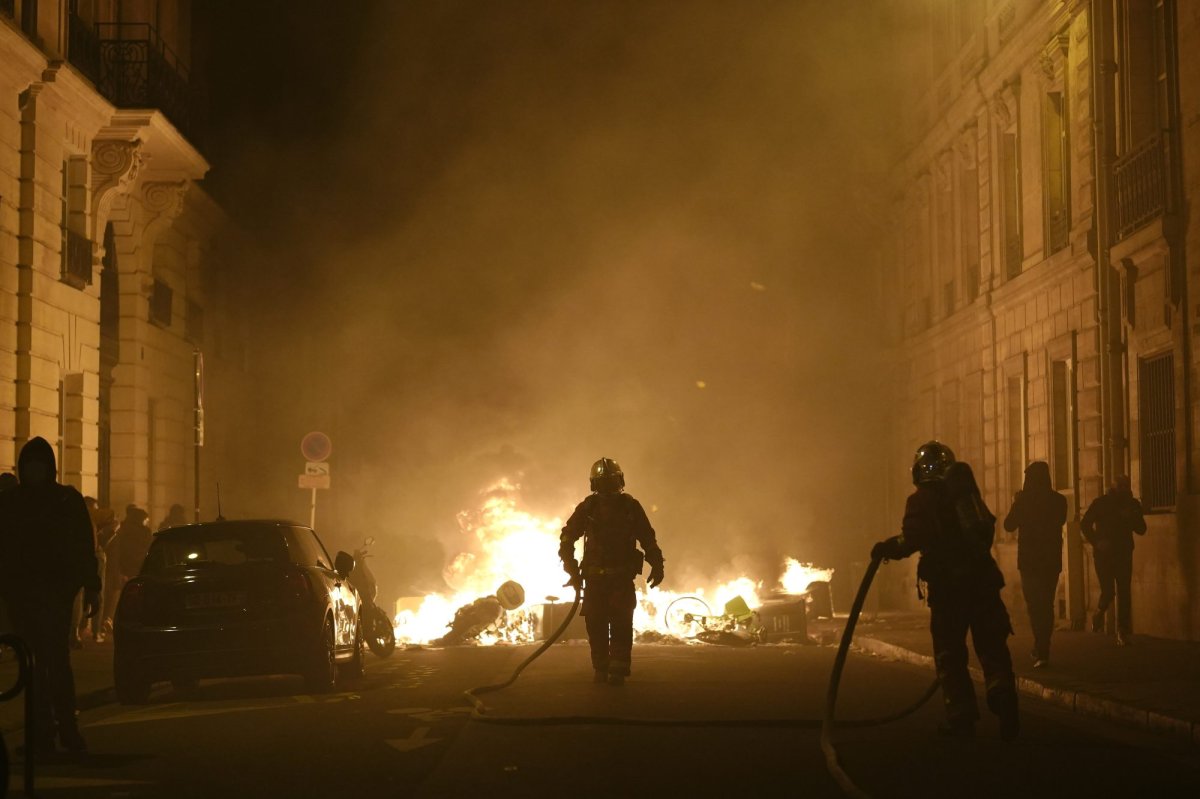
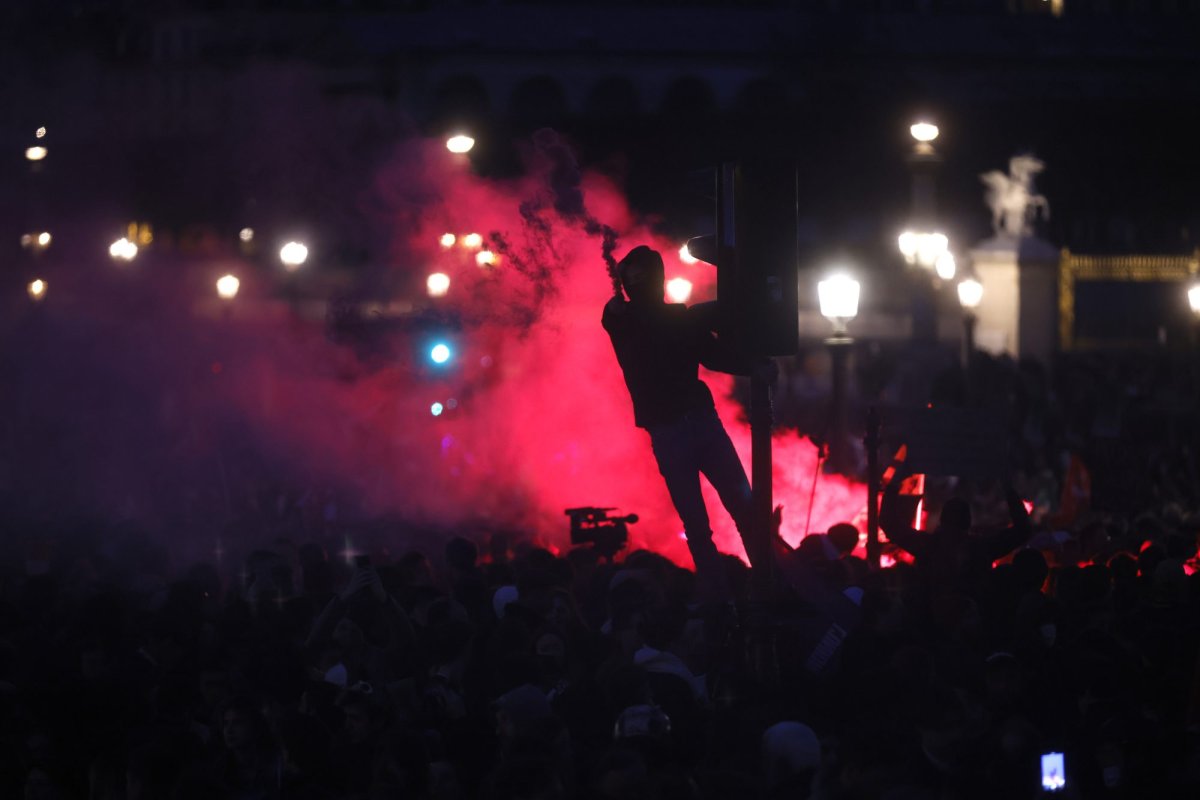
—With files from the Associated Press


